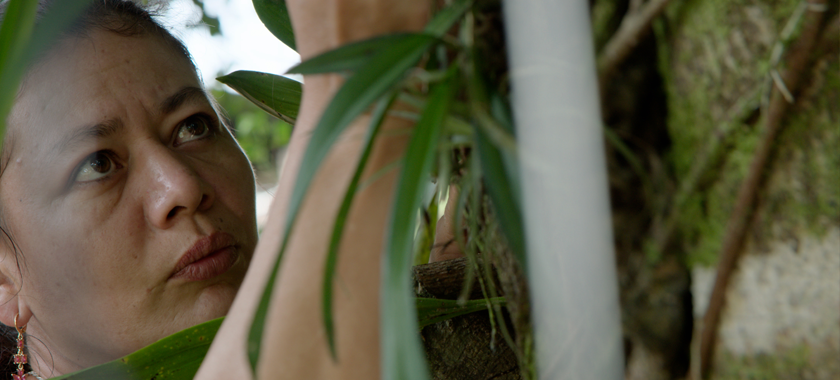
Anonymous Was A Woman and New York Foundation for the Arts (NYFA) Announce 2024 Environmental Art Grants Recipients
$308,000 Awarded to 19 Projects Led by Women-Identifying Artists in the United States and U.S. Territories
Anonymous Was A Woman (AWAW) and The New York Foundation for the Arts (NYFA) have announced the recipients of the Anonymous Was A Woman Environmental Art Grants (AWAW EAG) program, which provides one-time grants of up to $20,000 to support environmental art projects led by women-identifying artists from the United States and U.S. territories. In the 2024 cycle, the third year of the program, a total of $308,000 in grant funding was awarded to 19 projects that will focus on environmental issues and advocacy in locations including Ghana, Colombia, Puerto Rico, Louisiana, New Mexico, Michigan, and Oklahoma. The 19 projects were selected from 907 applications from artists who reside in the United States and U.S. Territories.
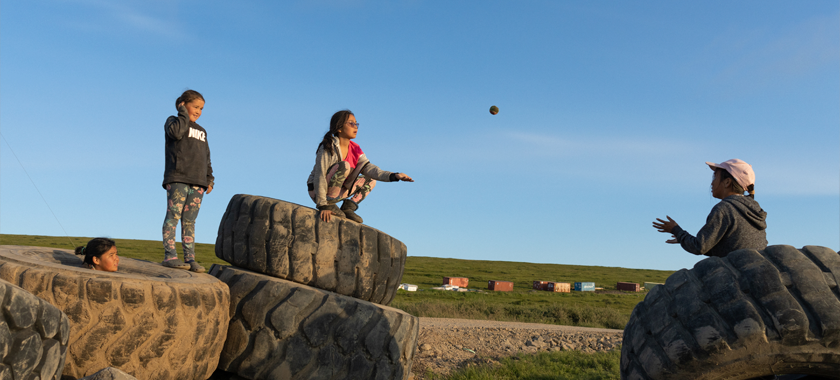
The projects span a range of media and activations including:
- Katie Baldwin Basile and Emily Schiffer’s Lessons from Newtok (Mertarvik, Alaska and Provincetown, Massachusetts), a pen pal project that invites youth from Mertarvik, Alaska and Provincetown, Massachusetts to evaluate the impacts of climate change on their communities through photography and writing.
- Shayla Blatchford’s The Anti-Uranium Mapping Project (Santa Fe, New Mexico), which offers interactive digital narratives that reveal the impact of uranium mining on the Navajo Nation.
- Emily Cohen Ibañez (Director/Producer)’s Orquídea (Colombia, South America) a kaleidoscopic film on the political and ecological life of orchids in Colombia, a country grappling with the climate crisis while trying to enact a peace process.
- Leila Mattina/Trama Antillana’s Decolonizing Blue (Barrio Llano, Aibonito, Puerto Rico) will recreate a traditional indigo processing station as a community hub for preserving and reclaiming knowledge of traditional indigo practices and uses.
- Victoria-Idongesit Udondian’s ‘Okrika’ Reclaimed! (Accra, Ghana), which addresses the environmental crisis caused by the secondhand clothing industry in Africa, particularly in Ghana.
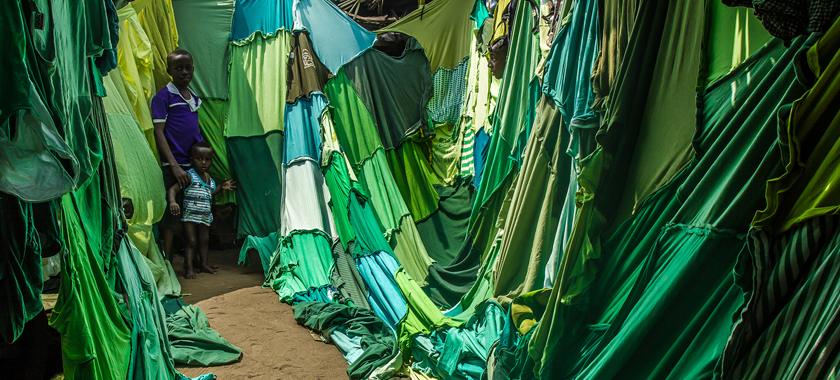
The AWAW EAG program supports environmental art projects that inspire thought, action, and ethical engagement. The intended impact of the project was an important factor in the selection process. The applications were reviewed by an esteemed panel comprising Hannah Chalew, visual artist; J. Sarah Gonzales, Senior Director, Sponsored Projects Program at Allied Media Projects; Patricia Johanson, artist; Wendy Shenefelt, Interim Co-Executive Director at Alternate ROOTS; and Connie Zheng, artist and writer. Preliminary panelists, who participate in the first round of application review, included Erika Bolstad, paris cyan cian, Amara Abdal Figueroa, Maru García, Autumn Leiker, Shanjana Mahmud, Cyan Meeks, and Júlia Pontés, all past recipients of the AWAW EAG.
Since 1996, AWAW has given over $7 million in unrestricted grants of $25,000 to nearly 300 artists, honoring women-identifying artists over the age of 40. In 2022, AWAW matched the $250,000 for the inaugural year of the AWAW EAG. The $308,000 awarded through the AWAW EAG in 2024 demonstrates increased support for myriad artistic projects, led by women-identifying artists, addressing critical environmental issues across the United States and U.S. territories.
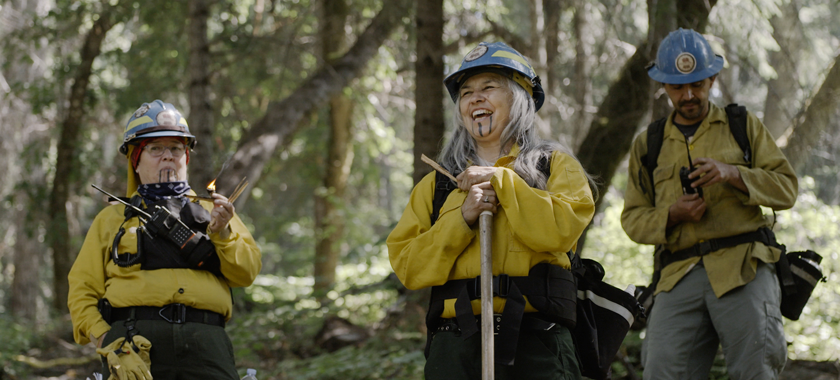
“As we again approach the record for the hottest year in human history, it is undeniable that climate change is an urgent crisis—and one that is top of mind for artists. The enormous response to this grant is proof that artists are eager to confront the practical and existential challenges of our current moment, often in beautiful, radical, and poetic ways. These projects are rooted in activating communities and individuals to address the many injustices that climate change exacerbates. I know that the projects supported by this grant will change attitudes and inspire action,” said Susan Unterberg, founder of Anonymous Was A Woman.
“Climate change is experienced by all of us on different personal levels, while holding significant global implications. This year’s AWAW EAG recipients are exploring climate issues through multiple layers with sensitivity, creativity, and great attention towards bringing communities together and inspiring positive change,” said Michael Royce, CEO, NYFA. “We’re grateful to Anonymous Was A Woman for supporting such an impactful program, and for uplifting the voices and ideas of women-identifying artists who are unflinchingly approaching this existential challenge,” he added.
Each of the selected projects will have a public engagement component which will be completed by August 2025. See below for more on each of the selected projects:
Katie Baldwin Basile and Emily Schiffer’s Lessons from Newtok (Alaska) is a pen pal project that invites young people from Mertarvik, Alaska and Provincetown, Massachusetts to evaluate the impacts of climate change on their communities through photography and writing. At first glance, Provincetown, the site where the Mayflower first landed, and the village of Mertarvik, the newest settlement in the USA and a safe haven for residents of Newtok forced to relocate, have little in common. Together, they bookend the history of colonialism, providing a unique opportunity to examine the climate crisis.Youth will research issues surrounding the climate crisis, write about their research, photograph their communities, and share their correspondence through local media outlets and a public art installation.
Shayla Blatchford’s The Anti-Uranium Mapping Project (Santa Fe, New Mexico) offers interactive digital narratives that reveal the impact of uranium mining on the Navajo Nation. Through a map-based interface with data and community testimonies, users explore narratives that include perspectives from uranium miners to environmental lawyers. A key storyline focuses on the 1979 Church Rock Uranium Mill Spill, using data visualization, historical documents, and video interviews to convey its profound effects. The project also collaborates with students to expand its scope, transitioning into a counter mapping experience that empowers marginalized communities to reclaim colonized land.
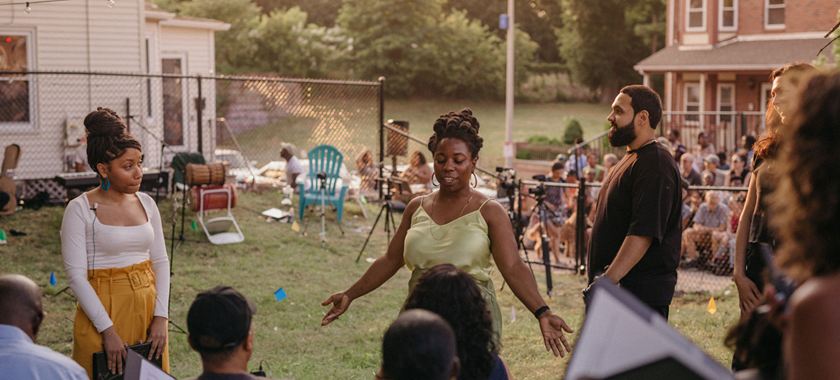
Dorchester Weather’s The Lot Next Door (Boston, Massachusetts) is a new play exploring systems at the neighborhood level in a world-class, 21st-century city steeped in troubled history and complex environmental futures. Dorchester Weather will work with the community in the lead-up to the play’s Summer 2026 premiere. The project’s ultimate goal is to use playmaking as a tool to heal and build community in order to move forward with a shared vision that promotes equity, justice, and sustainability.
Roni Jo Draper (Director), Co-Director Marissa Lila (Co-Director), Jenn Lee Smith (Producer), Nicole Docta (Producer)’s Good Fire (Weitchpec, Humboldt County, California) is a documentary film about how Yurok people are working to ensure that people, land, and fire remain united now and into the future. Since time immemorial, Yurok people have placed fire on the land to maintain a healthy and balanced ecosystem. Over the past 100 years, settlers banned that fire, and the environment and people have suffered. Now, Yurok people are returning fire medicine to the land in order to heal the world.
Dara Friedman’s Sky Woman Women Project (Seneca Nation of Indians, Cattaraugus Indian Territory, Mohawk Nation at Akwesasne, Buffalo and Great Valley, New York) is a film that holds space for 16 women between the ages of 8 and 80 to tell each other their version of “Sky Woman,” the Haudenosaunee Creation Story of a woman who falls from the sky and creates a world from a handful of dirt. The film works to remove the dam of knowledge to this powerful indigenous philosophy so that it can flow freely offering guidance. The tellings are informed and personal, dealing with the anxiety that springs from moving into an uncertain future and the vital need to create. The story acts as a guide for dealing with the natural world and maintaining balance within it by acknowledging our kinship, interdependence, and co-creation with the plants and animals that sustain us.
Tia-Simone Gardner’s Chronotopophobias (Fairfield, Alabama) is a book/atlas project that describes Fairfield, Alabama, which began as an exclusionary model city for skilled white steel workers, as a majority Black town through through images, non-traditional maps, essays, and sound scores. As the town grew during the shift from the agrarian to the extractive-industrial South, a Black place took root, and formalized American apartheid zoning restrictions reshaped this built/planned environment, extending racial fantasies into the natural environment. Gardner sees the book/atlas as a way to explore the truths of places and what a more experimental approach to Blackness and cartography might yield.
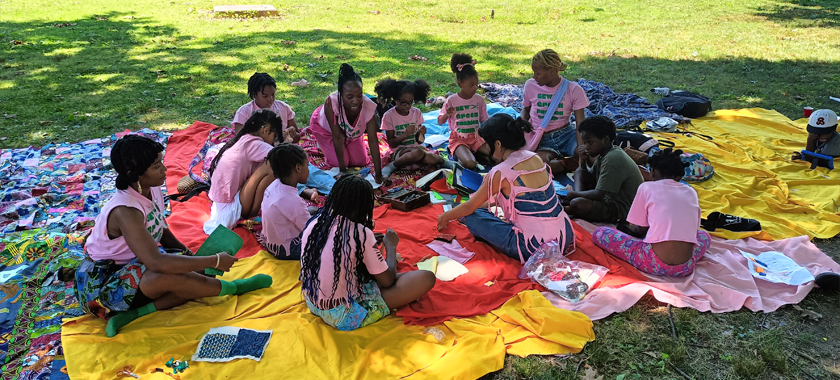
Hekima Hapa’s Sew Green Fashion Camp (Brooklyn, New York) is a 4-6 week Sustainable Fashion Design & Sewing workshop that has been operated by Hapa for 11 years. Each week-long session has between 20-40 participants, mainly girls of Color ages 10-17. The participants learn to hand and machine sew, merchandise, market, and sell the items they have crafted. Its latest iteration took place at Brooklyn Combine, with additional sessions taking place in summer 2024.
Yari Helfeld and Nami Helfeld’s The Parade of Time (Orocovis, Puerto Rico) is an artistic-educational project rooted in performing and visual arts, aimed at creating new communication channels between experts in climate change and the general public and promoting sustainability and agroecology on the island of Puerto Rico and beyond. The project attempts to provide solutions to a problem that many have identified on the island: Puerto Rico is a colony that depends on the resources of other countries, and its economic model is based on unlimited extraction and exploitation in an era of climate change. The parade characters, designed with farmers, electrical engineers, and environmental activists, encourage people to adapt their consumption habits to mitigate the effects of climate change to ensure our survival.
Emily Cohen Ibañez (Director/Producer)’s Orquídea (Colombia, South America) is a film that examines Colombia in the wake of an armed conflict that continued for over 50 years. Since the 2016 peace agreement, many strive to heal from the specter of war. In Orquídea, we meet a group of ex-combatants of the FARC who fight to protect the forest where orchids thrive, an Indigenous engineer who maps orchid species to preserve them, and a biologist who studies the capacity of orchid bees to reproduce a diversity of blooms, challenging the category of “species” itself. The film highlights stories that cross-pollinate and bloom into hope, intersex wisdom, and the human struggle to save the orchids and ourselves.
Amy Kennedy’s Vanishing Points: Words for Disappearing (The Gulf Coast of Louisiana) is a collection of essays and photographs about the violent ways heavy industry and nature intersect and the emotions elicited by those surreal spaces. It is organized like a glossary and explores the language and mindset necessary to process our swiftly changing climate, particularly around the Gulf Coast of Louisiana where the climate crisis is hyper-visible. It provides a glimpse into our collective future as climate change survivors, and highlights the emotional impact of climate change.
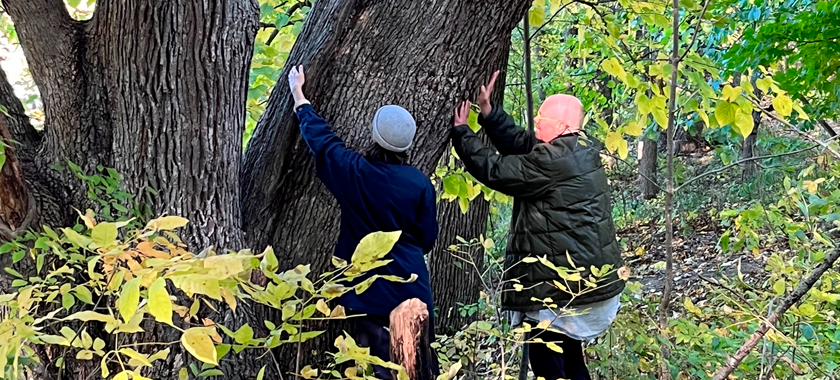
Petra Kuppers/Turtle Disco’s Crip Drifts: Michigan (4 sites in Michigan) are methods for moving through the world as disabled people living with pain: touching, being-with, sensing in a world that is likewise disabled, compromised, and thriving in complexity. Crip drifts will take place in post-industrial sites in Michigan: fully aware of the toxic load of brown fields, of the histories of redlining and other racialized land use systems, and in touch with the old building rubble beneath recently re-greened spaces. Turtle Disco collaborators will connect with disability organizations and environmental organizations to bring people together around specific trees in wildlands, urban landscapes, and nature centers. Each visit will culminate in a communal embodied dream journey/crip drift.
Leila Mattina/Trama Antillana’s Decolonizing Blue (Barrio Llano, Aibonito, Puerto Rico) will recreate a traditional indigo processing station as a community hub for preserving and reclaiming knowledge of traditional indigo practices and uses. The project aims to promote the development of a community of artisans working with indigo in Puerto Rico and across the Caribbean, as both an act of historical reclamation and a tool to address the environmental impact of the textile and dye industry.
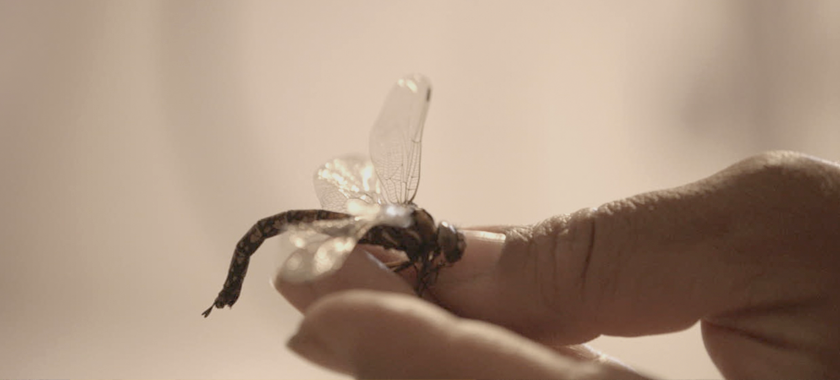
Jenni Morello’s Age of Loneliness (New York, New Jersey, California, Texas, Japan, Guyana, Alaska) is an epic drama about extinction told from the perspective of the key character facing extinction—the insect. The film employs its narrative and visual storytelling to jolt audiences into recognizing the magnitude of insect extinction within the broader context of climate change and biodiversity loss and the urgency of preserving Earth’s fragile web of life. The film addresses its core themes while spotlighting the voices of female entomologists and individuals of color, dismantling barriers, reshaping perceptions within the realm of entomology, and highlighting the loneliness of being an entomologist on the frontlines of insect extinction.
Koyoltzintli’s Tinkui, Seven Acts for the beginning, end and beginning of time (Hudson Valley, New York) is a sonic journey from the first explosion to the anthropocene through the lens of quantum physics and indigenous cosmology using pre-columbian artifacts, gongs, and other instruments. The performance and participatory event puts together different geological eras into seven acts, each narrated via sound. Participants will become active contributors by using some of the sound instruments that will be placed in the space, signaling that we all play a part in today’s earth unraveling.
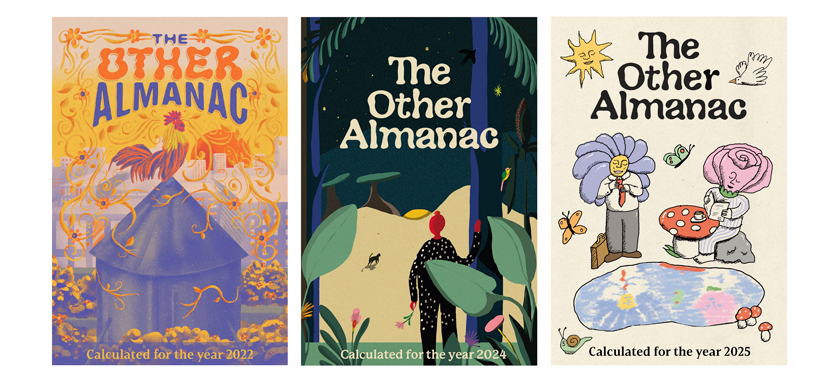
Ana Bessie Ratner’s The Other Almanac (Brooklyn, New York) is a reimagining of The Old Farmer’s Almanac, updated for today’s world. While retaining the quirkiness and liveliness of the original, it aims to bridge the urban/rural divide in America, delving into issues of politics and culture that unite us all and featuring original, full-color artworks. Like the traditional farmer’s almanac, The Other Almanac comprises a mix of garden advice, data, essays, art, poems, jokes, how-to’s, recipes, and calendars. Each edition is printed with the work of over 40 contributors; a curated mix of climate organizers, migrant farmworkers, historians, journalists, ecologists, sex workers, incarcerated painters, borderland midwives, and more.
brooke smiley & SOZO’s EARTH.SPEAKS (Oklahoma and California) is a multi-year initiative led by (Osage) artist smiley and developed by SOZO that redefines our relationship with Indigeneity, the body, and the land. EARTH.SPEAKS invites Native and non-Native communities to work together to build earth markers: sustainable and functional outdoor sculptures and structures. This project supports Osage’s embodied history by acknowledging forced diaspora, where and when separations occurred, and gives honor to the past, present, and future lands we have bonded with along this way.
Colleen Thurston’s Drowned Land (Oklahoma) is a feature-length documentary by Choctaw filmmaker Thurston. In her quest to understand the complex legacy of displacement and environmental exploitation within her community, Thurston turns her lens on the Kiamichi River. This vital waterway, a cornerstone of the Choctaw Nation, faces imminent threat from damming and diversion. The film intertwines the personal journey of the filmmaker with the collective struggle to protect this irreplaceable ecosystem and preserve the cultural heritage of the Choctaw people.
Victoria-Idongesit Udondian’s ‘Okrika’ Reclaimed! (Accra, Ghana) addresses the environmental crisis caused by the secondhand clothing industry in Africa, particularly in Ghana. Kantamanto, one of the world’s largest secondhand clothing markets, has become a massive open-air dump for discarded clothes, leading to significant environmental consequences. This project seeks to collaborate with local organizations to organize workshops and clean-up efforts in Kantamanto. The collected waste is repurposed into large-scale outdoor textile installations and will eventually be repurposed into functional furniture, attempting to generate resources that are reinvested into the local community.
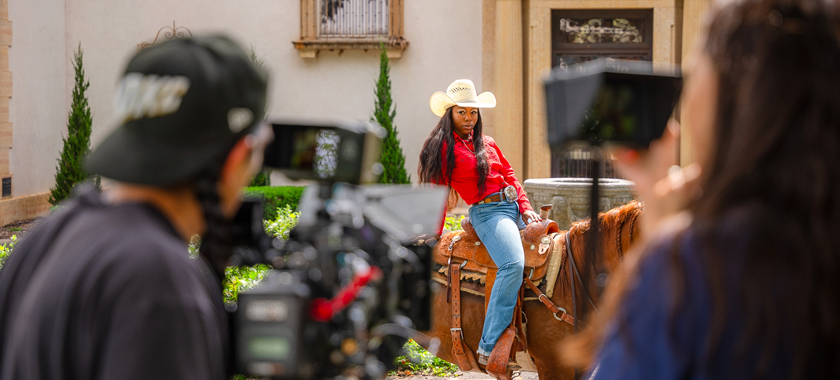
Loren Waters and Rebecca Jim’s ᏗᏂᏠᎯ ᎤᏪᏯ (Meet Me at the Creek) Project (Miami, Oklahoma) is a short film that tells a story of interconnectedness and Cherokee values through the lifelong fight of Jim as she leads the effort to restore Tar Creek in Miami, Oklahoma. U.S. government officials have designated Tar Creek as “irreversibly damaged,” but Jim refuses to accept that. The film brings awareness to the Tar Creek Superfund Site Cleanup efforts and directly supports their impact, outreach, education, advocacy, and litigation efforts.
Find out about additional awards and grants here. Sign up for our free bi-weekly newsletter to receive announcements about future NYFA events and programs.